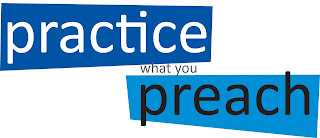Weekly Opinion Editorial
THANK GOD FOR #640!
by Steve Fair
What is the difference between a tax and a
fee? A tax is a compulsory payment
levied by the government on citizens and business. A fee is a ‘voluntary payment’ to the
government for services rendered by the government, but the person paying the
fee gets something in return- ae; a pack of smokes, a car or a gallon of
gasoline.
In 1992, a group of concerned Oklahomans,
who were sick of the Democrat led legislature taxing them without any recourse,
stood in front of Wal-Marts and other retailers gathering enough signatures-
233,832 to be exact- to get State Question #640 on the ballot. It required all ‘revenue
raising’ proposals be approved by a vote of the people or pass both chambers of
the state legislature with a ¾ majority.
SQ #640 was approved by Oklahoma voters in March of 1992 by a 56%-44% margin. Since its passage, legislators from both
Parties have tried to circumvent it and raise taxes without the super majority
or a vote of the people.
The legislature adjourned on Friday after
passing a $6.8 billion budget that raised fees on cigarettes, vehicle purchases
and sports tickets. The vote to approve
was less than the ¾ majority needed to satisfy #640, so it is a certainty the
fee increases will be challenged in the courts.
The budget left common education flat, and resulted in most agencies getting
a -4% cut. The fact is many state
agencies have enough revolving fund monies that the cuts will be minimal.
How did we get to the point in Oklahoma
where Republican legislators ignore the law and pass revenue bills with a
simple majority and ignore the state constitution? Every one of the Rs campaigned on reducing
the size of government, but a significant group of them voted to keep it the
same size. Even more disappointing was these
so-called conservatives celebrating and declaring this was the best they could
do. Really?
In April, Goldman Sachs said they expect
the price of oil to stabilize at or around $50 a barrel. There has been a steady rise in drilling
activity since last fall due to the stability in prices. Because Oklahoma government is so dependent
on the gross production tax to operate, it stands to reason, Oklahoma
government will get more money to appropriate next year. And
like this year, the legislature will spend every dime it takes in and try to
get more.
Those brave Oklahomans who stood in front
of Wal-Mart in 1992 and gathered signatures for #640 did every Oklahoman a
solid. At the time, most of the
activists believed if Republicans got control of the legislature, things would
be different. Sad to say, that hasn’t
been the case. Big government advocates
are in both Parties. Without SQ#640, Oklahoma citizens would have had
no recourse, but because some people cared enough 25 years ago to do more than
gripe, this will likely be struck down.





